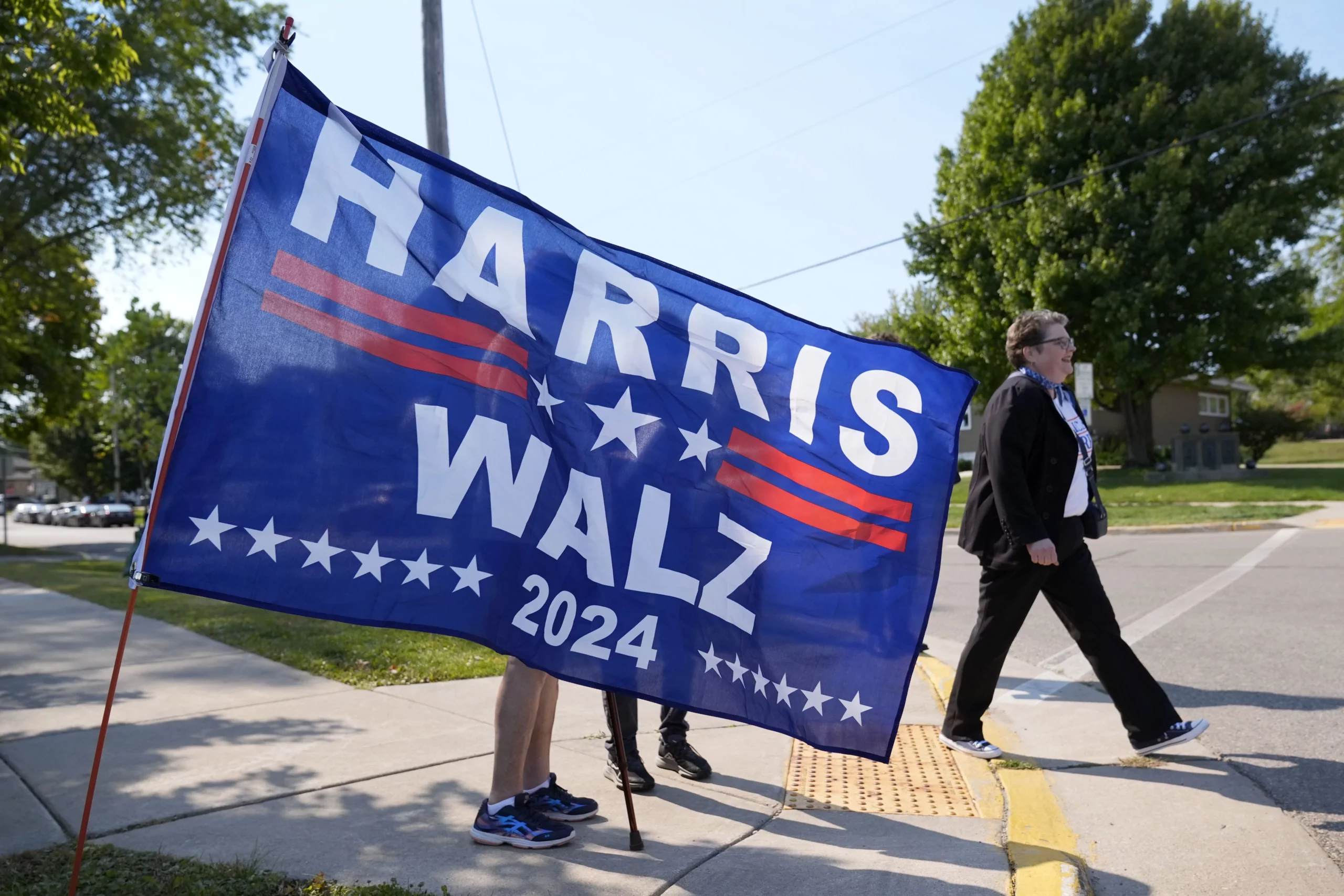

YORK, Pennsylvania — If Vice President Kamala Harris is to have any shot at beating former President Donald Trump this November, she needs to make inroads with the forgotten “Pennsyltucky” voter.
Beyond the liberal enclaves of Philadelphia and Pittsburgh, Harris is making a play for conservative voters in the rural Appalachian region that runs from Pennsylvania to Kentucky.
Harris’s campaign has underscored its margins strategy, aiming to not only maximize the number of votes the vice president receives in Democratic strongholds but also attempt to undermine Trump’s support in more Republican areas.
“There may not be many of these voters, but in a close race, they could matter,” Lancaster-based pollster Berwood Yost, director of Franklin & Marshall College’s Center for Opinion Research, said. “It is also true that there are still a number of voters who identify as traditional Republicans who are still making up their minds, so that strategy seems worth pursuing.”
To that end, the Harris campaign in Pennsylvania promotes that 16 of its 50 field offices in the state are in counties that are considered deep red and that Trump won by double digits in 2020, with former Georgia Lt. Gov. Geoff Duncan and onetime Virginia Rep. Barbara Comstock headlining a Republicans for Harris rally last week in Lancaster.
“Throughout the year, the campaign has been working to reach these voters, spending more than seven figures to communicate with them directly,” a Harris for Pennsylvania spokeswoman told the Washington Examiner.
In an effort to win over independents, even Republicans, Harris on Thursday campaigned with former GOP Rep. Liz Cheney in swing-state Wisconsin. The campaign has touted the support from more than 200 Bush, McCain, and Romney alumni, as well as more than 100 Republican one-time national security officials. Former Trump White House aide Cassidy Hutchinson, the star witness of the Jan. 6 congressional hearings, also backed Harris.
The campaign said its Pennsylvania Republicans for Harris coalition, led by former Lancaster County GOP Chairwoman Ann Womble and former GOP Rep. Jim Greenwood, has a volunteer base of nearly 300 registered Republicans who phone-bank and canvass throughout the state.
Drexel University political science professor emeritus Bill Rosenberg described the Keystone State as Pennsyl-tucky, a combination of Pennsylvania and more conservative Kentucky.
“The question in 2024 is have the Republicans seen enough basically of Donald Trump and are going to look for something different or are they going to go to that traditional concept of ‘going home’ again?” Rosenberg told the Washington Examiner.
Meanwhile, Trump has portrayed Harris as a “radical leftist” and “Comrade Kamala” who will kill off fracking in the state that relies on the energy source. Harris has reversed her past opposition and said she will not ban fracking if elected.
Polling shows Trump and Harris are virtually tied in Pennsylvania.
Without some hometown familiarity that President Joe Biden enjoyed as a Scranton native, Harris is looking to pick off centrist voters, including supporters of former U.N. Ambassador Nikki Haley. The Republican received 157,000 votes, or 16% support, in the state’s Republican primary in April, almost two months after she suspended her own presidential bid. Trump won Pennsylvania in 2016 by 44,000 votes and Biden won it in 2020 by 81,000.
Haley, who has endorsed Trump, performed best in the Philadelphia collar counties, Lancaster County, and Erie County, which backed Trump in 2016 and Biden in 2020, according to the Harris campaign.
“The counties that will be the most closely fought are Erie, Lehigh, and Northampton and perhaps Bucks,” Yost, the pollster, said. “But I wouldn’t sleep on places like Philly and Pittsburgh. If the turnout in those places is low or if Trump can reduce the Democratic vote share in those places, Harris will have a difficult time winning the state.”
In his first stop after the vice presidential debate, Harris running mate Gov. Tim Walz (D-MN) headed to a more conservative part of Pennsylvania and was backed by Sen. John Fetterman (D-PA).
Walz made his own entreaties to independents and Republicans, the impetus for Harris tapping him to become her second in command in the first place.
“Look, the Republican Party has added much to this country,” Walz told the crowd Wednesday at the York Exposition Center’s UPMC Arena. “We need them back again because that Republican Party used to talk about freedom and fair economy, and they meant it. It turns out Donald Trump’s people and their definition of freedom is freedom to invade your doctor’s office, freedom to invade your bedroom.”
After Walz’s rally, Lia, 49, who preferred not to have her last name published, said if Republicans “want to have a more positive outlook in life, they should go with Harris.”
“There’s no reason to go with Trump. He’s not going to do anything for anyone but himself,” the York small business owner told the Washington Examiner.
Lia’s partner, Michael, 50, himself a former Republican, added many Trump supporters back the man, not the GOP policies he supposedly stands for.
“Trump has a core that I don’t think will ever leave him unless something big happens,” he said. “You got to respect everybody, but you got to try and educate at the same time.”
CLICK HERE TO READ MORE FROM THE WASHINGTON EXAMINER
Sheila Zent, 69, a Hanover retiree, recalled encountering “a lot of people that are Republicans that really don’t like Trump at all” as she campaigns for Harris in York County.
“So it’s not that can we get them back; Trump has alienated all of them,” she said.







